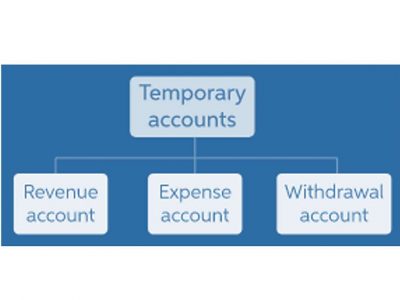
With the right medical accounting software, these entities can focus more on their primary goal – delivering quality patient care. A crucial aspect of medical accounting is managing the flow of funds from patient services. This involves billing, coding, accounts receivable management, insurance claim processing, and ensuring timely collection of payments.

- However, if they’ve never worked with a busy medical practice before, they may not be able to develop effective medical practice accounting solutions.
- Ensuring the safety of information related to medical billing, payroll, and tax deductions is crucial for complying with healthcare industry regulations, such as HIPAA, and maintaining trust in financial operations.
- Errors in coding can lead to claim rejections or denials, affecting the revenue cycle.
- At Invensis, we offer accounting and consulting services for the healthcare industry to aid doctors from various fields.
Password Management
Alternatively, a provider could be paid per diem (per day) at an amount typically set by the payer, or on a case-by-case basis, for example through Medicare Severity Diagnosis Related Groups (MS-DRGs). For example, medical coders make mistakes, patients fail to pay their bills, and insurance companies reject claims. As a result, medical practices must establish even more efficient accounting for doctors office systems for tracking and organizing data.
Bookkeeping is put on the back burner

Your employees could lose future Social Security, Medicare, or unemployment benefits if those funds aren’t paid. So take care of your obligations—and your employees—by making complete payroll tax payments on time. Your company withholds FICA taxes (along with their federal income taxes) from your employees’ paychecks. You’ll then transfer these funds, along with your own contributions, via the Electronic Federal Tax Payment System (EFTPS).

Most Asked Questions Regarding Medical Accounting Software (FAQ’s)
This will help you spot potential cash shortages before they happen so you can make a plan to trim expenses, ramp up collections, or tap a business line of credit. Medical practice accounting is different from accounting for other unearned revenue types of businesses. You don’t just need to account for patient payments—you also need to deal with insurance companies and government-backed programs like Medicare and Medicaid. “I know I should have a budget for my practice, but I never seem to get around to it.” Sound familiar? Many practices never manage to establish a budget, and many others establish a budget and then never look at it again.

Wave Accounting is a user-friendly healthcare accounting software with features tailored to the needs of small healthcare practices. By offering essential financial management tools in an easy-to-navigate package, it is an excellent fit for small practice accounting. Most businesses look at profitability as the revenues collected less the expenditures made during a period.

McDonald’s ‘meals will subside for some time’ after a number of cases…
- The income statement reports both revenues and expenditures for a specified reporting period, this could be monthly, quarterly or annually.
- Account passwords are confidential and should not be shared under any circumstances.
- Lendio can help match you with the right lender for your medical practice loan.
- Here’s everything you need to know about bookkeeping for medical practices.
- Expenses are the operating expenses related to running the practice and providing services.
- I suggest elevating your understanding of medical billing and coding by taking courses that complement medical accounting software for precise financial tracking.
- For those new to it, health care accounting can feel about as confusing and daunting as conducting an open heart surgery.
Professional advice is crucial, especially when deciding on an accounting method that will align with both current needs and future goals. For most practices, I recommend performing a variance analysis quarterly so that new problems can be caught quickly. For example, if staff overtime costs are creeping up, you’d want to discover this sooner than the end of the year.
Finances and Your Practice
For instance, if your practice has grown and expenses have increased, update your budget to reflect these changes. Regular budgeting keeps your finances on track and allows you to allocate resources effectively. With professionals taking care of your books, you can keep your focus on your patients. It’s important for a healthcare practice to do everything it can to ensure steady cash flow. That incudes billing promptly for each procedure and using the proper current procedure terminology (CPT) code to avoid delays or inadvertently undercharging for services.
